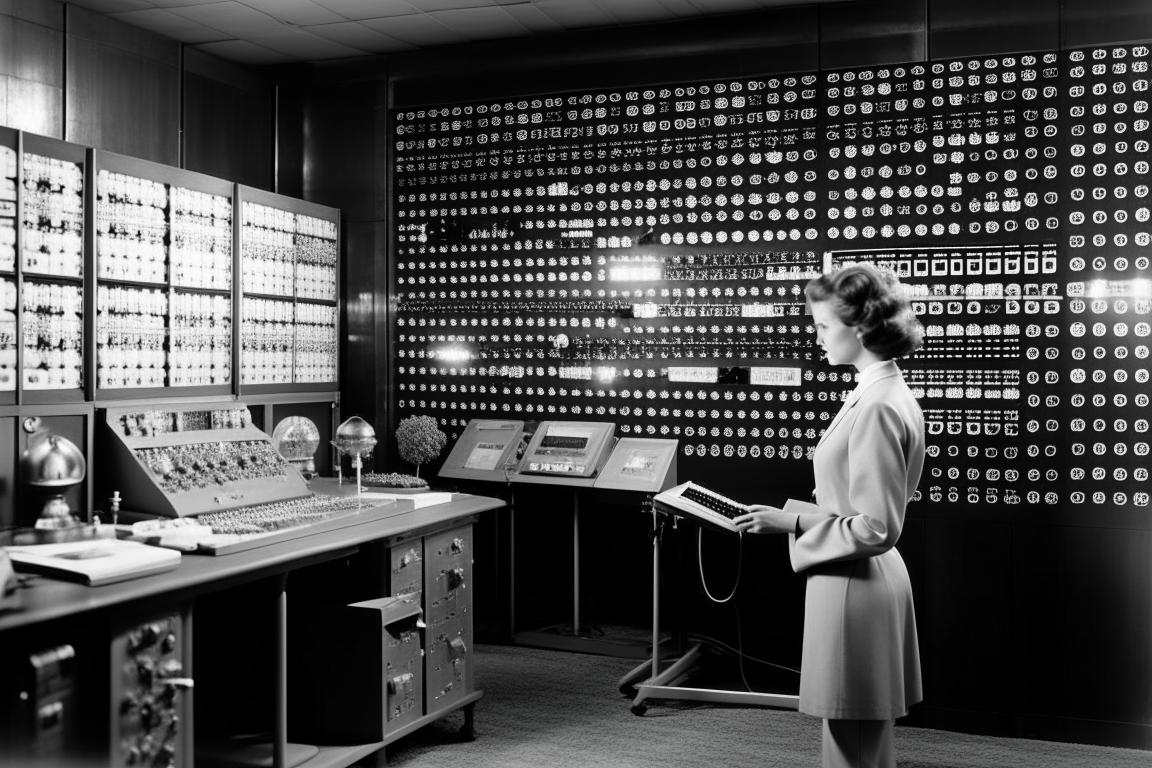Artificial intelligence (AI) is not a new technology. The first steps in its development were taken in the 19th century. The article discusses the history of AI, from the inception of the idea to modern achievements.
AI is a field of computer science that deals with the creation of intelligent agents, which are systems that can plan, learn, and act autonomously. AI has a long and rich history, dating back to the 19th century.
One of the first steps in the history of AI was the invention of the Turing machine, a mathematical model of computation invented by British mathematician Alan Turing in 1936. The Turing machine showed that it is possible to create machines that can think and solve problems algorithmically.
Another important achievement in the history of AI was the development of game theory, a branch of mathematics that studies the interaction between rational agents. Game theory was used to develop algorithms for games such as chess and Go, which are considered to be some of the most complex games that exist.
In the 20th century, AI continued to develop rapidly. In 1957, American scientist John McCarthy organized the first workshop on AI, which is considered the beginning of official research in AI.
In the early 1960s, AI experienced a boom, as various important technologies were developed, such as general AI (AGI) and rule-based AI.
However, the AI boom ended in the early 1970s, when several large AI projects failed. This led to a crisis in AI research, which lasted until the early 1980s.
In the early 1980s, AI began to recover, as new technologies were developed, such as knowledge-based AI and learning-based AI.
Since then, AI has continued to develop rapidly. In the early 21st century, AI began to be used in practical applications, such as autonomous vehicles, facial recognition, and machine translation.
Today, AI is an active area of research, with many challenges still to be solved. However, AI has the potential to revolutionize many areas of society, including healthcare, education, and industry.
Key milestones in the history of AI
1936: Alan Turing introduces the Turing machine, a mathematical model of computation.
1957: John McCarthy organized the first workshop on AI.
1958: Marvin Minsky and John McCarthy introduce the concept of general AI (AGI).
1965: Herbert Simon and Allen Newell developed the chess program called General Problem Solver.
1972: Joseph Weizenbaum developed the chatbot program called ELIZA.
1974: Marvin Minsky and Seymour Papert publish the book Perceptrons, which criticizes AI programs based on machine learning.
1980: John McCarthy and Patrick Winston publish the book Artificial Intelligence: An MIT Perspective.
1985: David Rumelhart, Geoffrey Hinton, and Ronald Williams publish the paper «Learning Internal Representations by Error Propagation».
1997: Deep Blue, a supercomputer developed by IBM, defeats world chess champion Garry Kasparov.
2005: Google launches Google Translate, a machine translation service.
2011: Watson, a computer developed by IBM, wins the Jeopardy! quiz show.
2014: DeepMind, an AI research company founded by Demis Hassabis, Shane Legg, and Mustafa Suleyman, was acquired by Google.
2016: AlphaGo, an AI program developed by DeepMind, defeats world go champion Lee Sedol.
2017: AlphaGo Zero, an updated version of AlphaGo, learns to play Go on its own, without any prior knowledge of the game.
2022: GPT-3, a large language model developed by OpenAI, is released.
The future of AI
The future of AI is uncertain, but there are many reasons to be optimistic. AI has the potential to solve some of the biggest challenges facing the world, such as climate change, poverty, and hunger.
AI also has the potential to improve our lives in many ways, making them more efficient, safe, and comfortable.
However, it is also important to be aware of the potential risks of AI. For example, AI could be used to create autonomous weapons that could kill without human intervention. It is important to develop AI in a responsible way that minimizes these risks.
